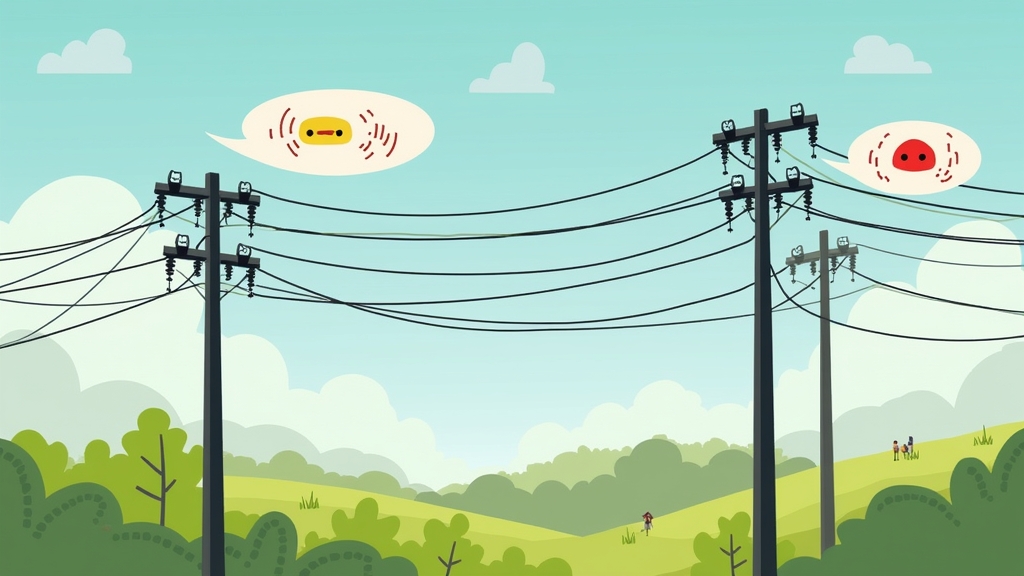“Brilliant New Tech Lets Power Lines Finally Air Their Grievances After Years of Being Ignored”
In a groundbreaking development that could revolutionize the power grid—or at least give neglected power lines some much-needed therapy—California-based startup Gridware has deployed sensors that literally *listen* to electrical wires. That’s right, the wires are talking now, and they have a LOT to say.
“People think power lines are boring, but they’ve been screaming for help for decades,” said Gridware CEO Mike Sparks, whose company developed the high-tech gossip boxes, designed to eavesdrop on electrical lines like your neighbors listening through thin apartment walls. “Our sensors can identify threats to the system by basically becoming the grid’s personal therapist, but more judgmental.”
The tech relies on sophisticated algorithms, or as homeowners call them, “That Thing That Will Definitely Spy on My Spotify Playlist.” These algorithms interpret everything from buzzing to sparking to what is essentially the equivalent of an atmospheric eye-roll. Apparently, wires are pretty dramatic.
“The box heard a line crackle the other day, and we’re pretty sure it was a cry for help,” said a Gridware technician, who refused to give his name but insisted we refer to him as “Larry the Line Whisperer.” “It’s like, ‘Oh no, am I sagging too much again?’ The grid is surprisingly insecure.”
Power companies thrilled by the advancements say this new tech could spot risks like potential wildfires, outages, or even the heartbreaking sound of a squirrel mistaking a live wire for a breakfast snack. “For decades, we’ve just shrugged and waited until something exploded or caught fire,” admitted one unnamed utility executive. “But now—thanks to these genius little boxes—we can PRETEND we’re proactive!”
Of course, privacy advocates have already raised alarm bells about this overzealous eavesdropping. “First they’re listening to wires, next they’ll be listening to *us!* What if my toaster starts snitching on me?” demanded local conspiracy theorist Barry “Big Chill” Gunderson, who has covered all his appliances in foil to thwart potential AI-mediated food-shaming.
But the wires don’t seem too upset about the surveillance, considering it’s better than, you know, snapping under pressure and starting brush fires. “Frankly, I’m relieved someone finally appreciates my needs,” crackled a nearby power line when Gridware hooked up their device. Our translators weren’t available to confirm this, but those in the tech community say it sounded like an audible sigh of relief mixed with a swish of high-voltage swagger.
Investors, including venture capital heavyweights Sequoia Capital, have enthusiastically backed the project, perhaps because “listening to dead objects” is a trillion-dollar Silicon Valley dream. “If we can monetize nonliving things like wires, there’s no limit. Next stop: feelings-based road repairs,” said Chris Moneybrook, an angel investor whose new LinkedIn title reads “Grid Whispering Visionary.”
Critics, however, are skeptical. “If a *box* can figure out what’s wrong with the electrical grid, why the hell can’t the people who’ve been doing this for decades?” asked a disgruntled power line repairman, who then muttered under his breath about “robots taking naps too.”
Whether you find this tech unnecessarily nosy or the savior of modern energy, one thing’s for sure: we’re now living in a world where everything—and I mean EVERYTHING—has feelings. So the next time your light flickers, maybe don’t curse at it. It might just need a little validation instead.





